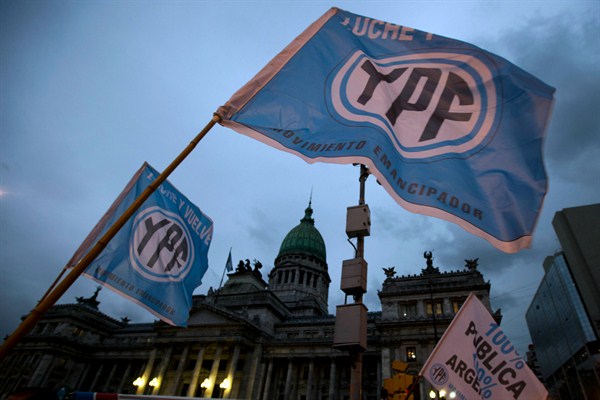The energy world has been abuzz since Mauricio Macri won a surprise victory in Argentina’s presidential elections on Nov. 22. The former mayor of Buenos Aires’ pro-business platform has raised expectations at home and abroad among investors and analysts anxious for change. Argentina has the potential to be both a regional and global energy leader, but after 12 years of Kirchnerismo, Macri has a long road ahead. Still, the prospects for an economic and energy turnaround have never been brighter, and Argentina’s energy sector has the potential to become a significant driver of future economic growth.
Macri, who was sworn in Thursday, has an opportunity to not only diversify Argentina’s energy outlook beyond hydrocarbons, but to develop the country’s lethargic renewable sector. Macri can take advantage of technological advances, lower costs and substantial global political will to reach beyond the modest clean energy targets Argentina has set. The COP21 talks currently underway in Paris provide further impetus for change.
Macri has wasted little time in setting the agenda for his new administration, hoping to regain Argentina’s status as a South American energy leader, through natural gas exports and regional energy integration. A sinking economy and poor policymaking have kept energy investors on the fringe. Despite containing some of the world’s largest untapped shale oil and gas reserves, Argentina currently imports around 15 percent of its energy needs, at a cost of $6 billion a year.

